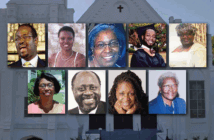During my tenth year as pastor of a large multi-staff church, the laity offered me a twelve-week study leave for rest, renewal, and learning. I was absent during the summer months as volunteers and staff planned the fall schedule. Upon my return, I discovered a program full of great new ministries — an eight-week lay academy that offered a dozen Bible studies and small group classes for adults, a Wednesday children’s program that had been radically reinvented, a missions initiative that addressed an unmet need in the community using dozens of volunteers, the launching of a young couples class, and a new approach to using our projection screens in worship. All of these were departures from the usual programs that we had used successfully for years.
A culture of Yes expects people to have ideas, gifts, and callings. It amplifies what works and encourages the passions and callings that already exist but which may remain unseen or hidden from view.
As I looked at the fall program, I thought, “These are great ideas. Why didn’t we think of these things when I was there?” Then it dawned on me: maybe we didn’t initiate these things before now because I had been there! If I had been present during those months of planning, the fall program would likely have looked similar to that of previous years. While I think of myself as open to ideas and an encourager of experimentation, there are times when I’m the one whom God has to work around for accomplishing creative change.
Many leaders have become accustomed to the culture of No. The No person looks for problems, and then focuses exclusively on how to fix them. The problem-finder’s obsession with things that are broken sometimes has the effect of magnifying not merely the perception of the problem, but the problem itself. “I serve a dysfunctional church,” a pastor says. “I could never get my people to do that.” “That would never work here,” a layperson laments. “Our church doesn’t have enough people or money.”
The repetition and reinforcement of these negative perceptions create a self-fulfilling prophecy. Leaders who focus exclusively on what’s broken, what doesn’t work, and what can’t happen foster an environment that makes change impossible. Permission-giving leaders rid themselves of the idea that the future is in someone else’s hands, the direction of the congregation is beyond influencing, and there’s nothing that can be done.
A culture of Yes expects people to have ideas, gifts, and callings. It amplifies what works and encourages the passions and callings that already exist but which may remain unseen or hidden from view.
Permission-giving leaders shift from “How can I change those people to get them to do what I want?” to “What are the changes I’m willing to make to unleash people for ministry?” They embody the change they want to see happen. This shift in attitude is an antidote to helplessness. Leading a permission-giving church requires becoming a permission-giving leader. Change in the church begins with the change in values, attitudes, and behaviors that takes place in us.
This article is adapted from Robert’s most recent book, Just Say Yes: Unleashing People for Ministry (Abingdon Press, 2015), and used by permission of the author and publisher. The book is available at Amazon or Cokesbury.
Related Resources:
- The Failure-Tolerant Leader by Robert Schnase
- Sifting Our Inheritance: What to Keep and What to Let Go by Christine Chakoian
- Continuity and Change: Two Tunes Every Leader Must Know by Lovett H. Weems, Jr.







